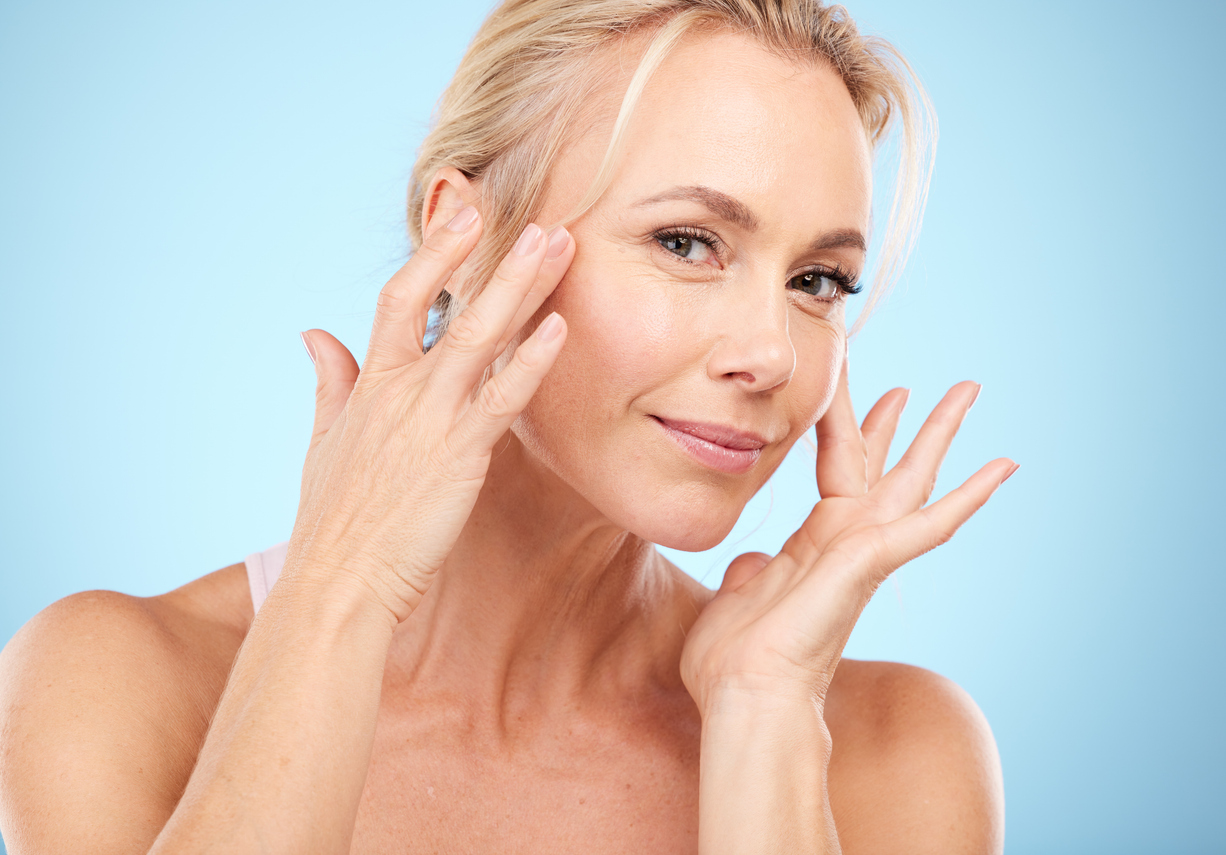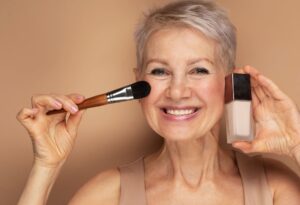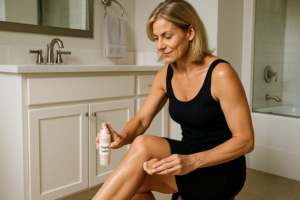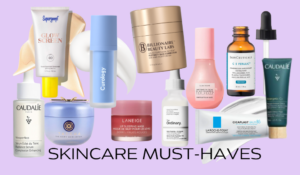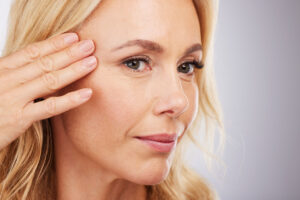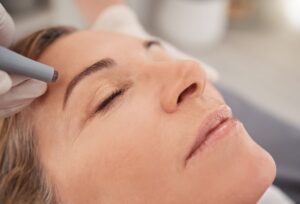Retinol has long been hailed as a hero in skincare, especially in the anti-aging category. Derived from vitamin A, retinol is part of a family of compounds known as retinoids, and its use in skincare dates back to the 1970s when it was first introduced as an acne treatment. Over time, it became clear that retinol could do much more than address acne; it could also promote smoother, firmer skin, reduce hyperpigmentation, and fight the signs of aging. Today, retinol is a staple ingredient in many over-the-counter and prescription skincare products, with wide-ranging benefits for various skin types and concerns.
Benefits of Retinol
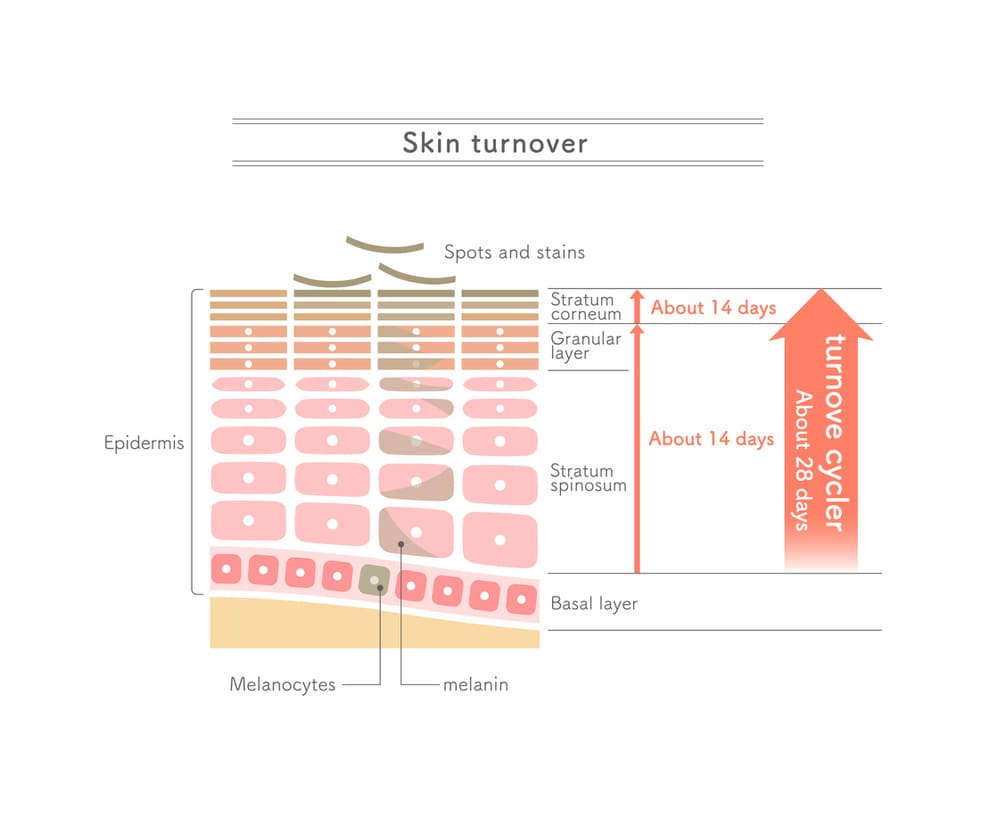
One of the main reasons for retinol’s popularity is its scientifically proven ability to address multiple skin concerns simultaneously. First and foremost, retinol works by increasing cell turnover. As we age, the skin’s natural rate of cell renewal slows down, leading to dullness, fine lines, and uneven skin tone. Retinol helps to speed up this process, encouraging the skin to shed dead cells and reveal newer, healthier skin underneath. This cellular rejuvenation not only smooths out wrinkles but also helps improve skin texture and brightness.
Retinol also stimulates collagen production, a protein that provides structure and firmness to the skin. As we get older, collagen production decreases, contributing to sagging and the formation of deep wrinkles. By boosting collagen synthesis, retinol can help keep the skin plump and reduce the appearance of fine lines and wrinkles, giving it a more youthful look.
For those with acne-prone skin, retinol can be transformative. By increasing cell turnover, retinol helps to prevent clogged pores, which can lead to breakouts. It also has anti-inflammatory properties that reduce redness and swelling associated with acne. With consistent use, retinol can help minimize the occurrence of new blemishes while also fading post-acne scars and hyperpigmentation.
Retinol is also highly effective in fading dark spots and pigmentation caused by sun damage or hormonal changes. Exfoliating the surface layers of skin and promoting the turnover of new cells can help lighten areas of hyperpigmentation, leading to a more even skin tone.
Skin Concerns and Possible Side Effects
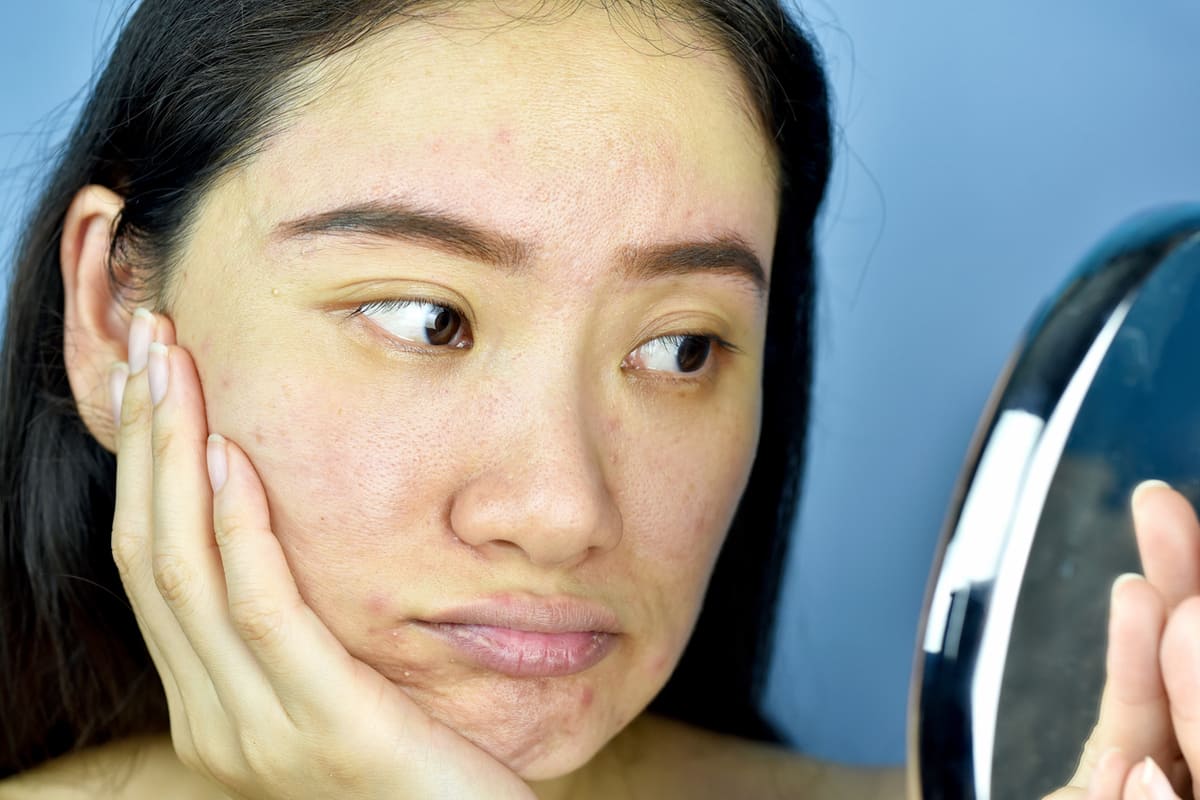
Despite its myriad benefits, retinol is not without its potential side effects, especially when first introduced into a skincare routine. The process of increasing cell turnover can initially lead to skin irritation, dryness, and redness. This is often referred to as “retinol purging,” where the skin’s increased exfoliation can temporarily exacerbate blemishes and dryness before the benefits become visible.
The irritation caused by retinol is more pronounced in people with sensitive or compromised skin barriers. For those with conditions like rosacea or eczema, retinol may initially be too harsh and can worsen redness and inflammation. It is essential for those with sensitive skin to start with a lower concentration of retinol and gradually build up their tolerance to minimize irritation.
Dryness is another common side effect of retinol. As the outermost layers of the skin shed more rapidly, the natural moisture barrier can become compromised, leading to flaking, tightness, and an overall feeling of dryness. To mitigate this, it is recommended to use a rich moisturizer alongside retinol, particularly in the evening, as retinol is best applied at night. Hydration is key to preventing excessive irritation and maintaining skin health while using retinol.
Another important concern with retinol use is its interaction with sun exposure. Retinol can make the skin more sensitive to UV radiation, increasing the risk of sunburn and accelerating sun damage. For this reason, it is crucial to apply sunscreen with a high SPF daily when using retinol, even on cloudy days. While retinol is generally applied at night, the effects on skin sensitivity can last throughout the day, making sun protection a non-negotiable part of a retinol routine.
Retinol and Aging: How Its Use Changes Over Time
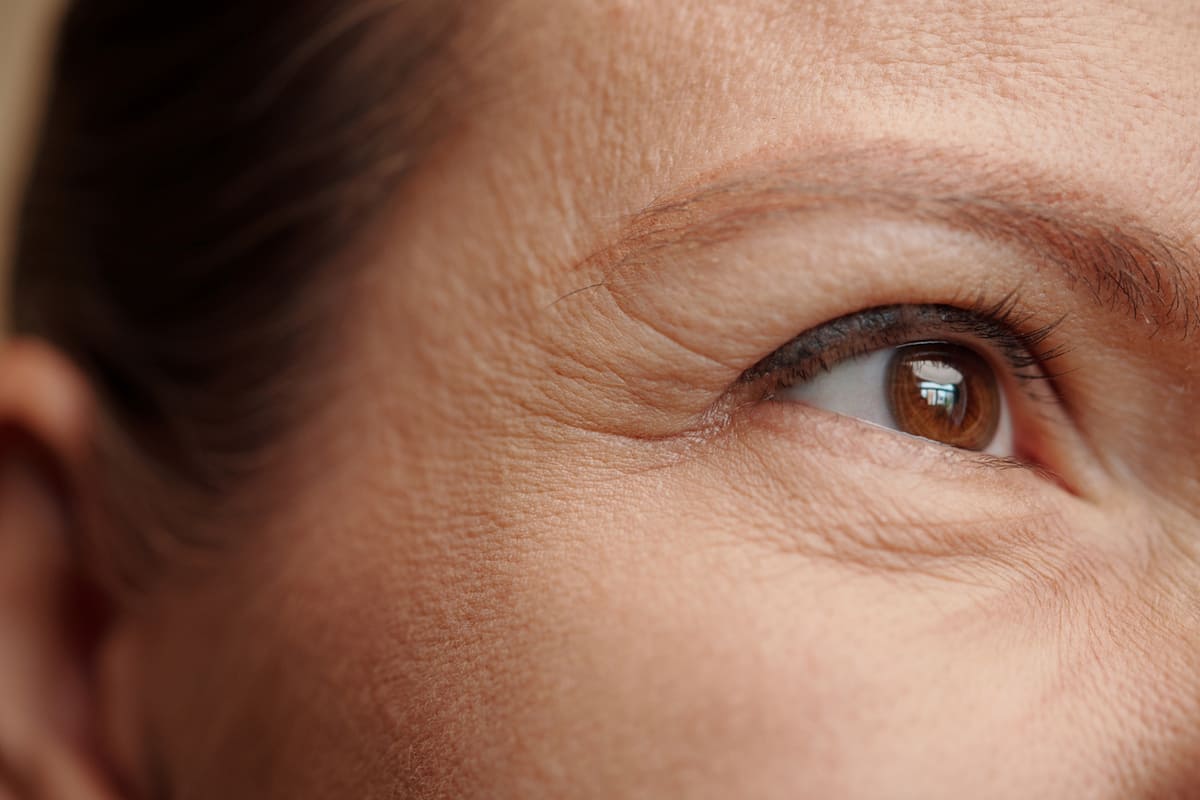
As we age, our skin’s needs evolve, as does how we use retinol. Younger individuals, particularly those in their 20s, often use retinol for acne treatment or as a preventative measure against early signs of aging. At this stage, a lower retinol concentration is often sufficient to maintain clear, healthy skin. In this decade, retinol helps control excess oil production, reduces the frequency of breakouts, and maintains a smoother complexion.
As we move into our 30s, the first signs of aging —such as fine lines, sun damage, and uneven texture —often become more pronounced. In this period, retinol can be used more strategically to prevent and reduce the appearance of wrinkles, boost collagen production, and even out skin tone. Many individuals in their 30s begin increasing the frequency of retinol application or switching to stronger concentrations, as long as their skin can tolerate it. This is also when retinol becomes an essential part of anti-aging routines, particularly as collagen and elastin production begin to decline.
By the time we reach our 40s and 50s, collagen loss, skin thinning, and deeper wrinkles become more significant. Retinol remains one of the most effective ingredients for addressing these issues, but many individuals may need higher-strength formulations or even prescription-strength retinoids to see continued benefits. In this age range, it is also common to pair retinol with other active ingredients like peptides, antioxidants, and hyaluronic acid to target multiple signs of aging simultaneously. At this stage, retinol helps to maintain skin elasticity, minimize age spots, and improve overall skin texture.
However, as skin becomes thinner and drier with age, it may become more sensitive to retinol, even in those who previously tolerated it well. In these cases, reducing the frequency of application or using a lower-strength retinol may be necessary to avoid irritation. It’s also essential to keep skin well-hydrated and to layer moisturizing products to support the skin barrier.
The Balance of Risks and Rewards
While retinol is a powerhouse in skincare, it requires a balanced approach to maximize benefits and minimize risks. The key to success with retinol is patience and persistence, as it can take several weeks or even months to see significant improvements in skin quality. Start slowly, using retinol two to three times a week, and increase as your skin builds tolerance. Combining it with a well-rounded skincare routine that includes moisturizers, sunscreen, and possibly other activities will help you achieve the best results.
In conclusion, retinol is one of the most researched and effective ingredients for a wide range of skin concerns, from acne to aging. Its ability to increase cell turnover, stimulate collagen, and promote even skin tone makes it a go-to for many individuals looking to maintain a youthful, healthy complexion. However, its potent effects can also lead to side effects, particularly when used improperly or on sensitive skin. Understanding how to incorporate retinol into your skincare routine as you age is crucial to reaping its full benefits while minimizing potential irritation and damage. Retinol can remain a valuable tool for maintaining skin health and combating the visible signs of aging by adapting its use to your skin’s evolving needs over time.
Top Retinol Products for Mature Women
Odacite Renewing Serum, $78
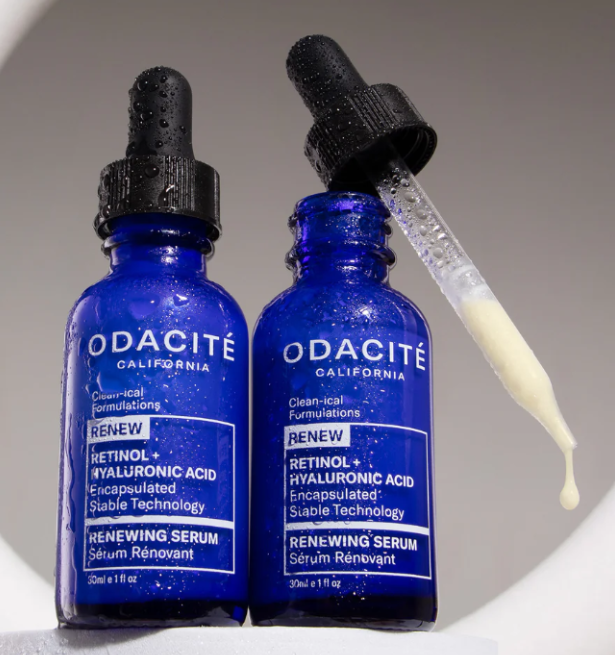
A youth-restoring Retinol Serum expertly formulated with Advanced Encapsulation Technology to visibly minimize signs of aging & blemishes. Paired with Hyaluronic Acid in this Cleanical Formulation, Encapsulated Retinol delivers maximum benefits while minimizing any risk of irritation.
95% agree this serum minimized the appearance of fine lines*
100% agree skin texture feels visibly smoother*
*Independent consumer study carried out on 50 real women over 4 weeks
VI Derm Retinol Age-Defying Treatment Moisturizer, $110
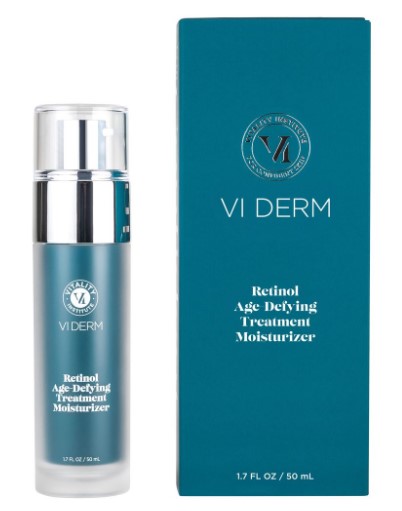
This multi-tasking daily moisturizer with 10% glycolic acid clears away skin cells that cause dullness, uneven texture, and discoloration while supporting optimal retinol absorption to stimulate cell turnover and minimize signs of aging. Key ingredients include THD ascorbate (potent vitamin C), which enhances collagen production and provides antioxidant protection, and azelaic acid, which helps regulate sebum production, leaving skin smooth and supple. When used daily, it provides a visible difference in skin texture and tone.
Biopelle Retriderm Serum Mild, $84
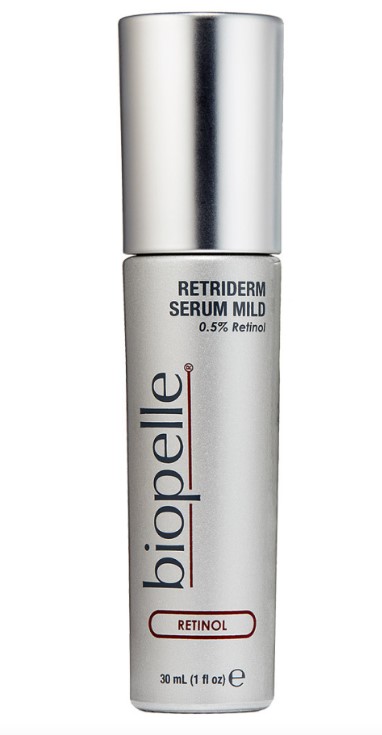
Retriderm Serum Mild is a game-changer in retinol skincare with its unique oil-free, protein-rich patented formulation and unparalleled results. It contains 0.5% retinol and is ideal for sensitive skin or first-time retinol users with a clinically proven formulation. In addition, Retriderm Serum Mild helps reduce fine lines and wrinkles and delivers firmer, smoother-looking skin. It’s dermatologist-approved, non-comedogenic, and mild enough for sensitive skin.
Read Next:
A Flexible Anti-Aging Skincare Routine That Works

